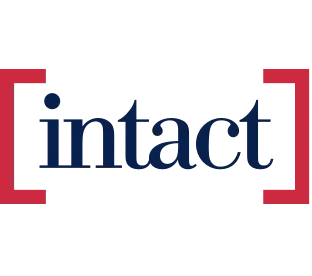The Snapshot:
- CHS, a major agricultural co-op, experienced supply chain disruptions due to severe weather events that hindered their operations.
- Before Tomorrow.io, CHS relied on general forecasts that failed to account for local weather complexities.
- CHS adopted Tomorrow.io for its hyperlocal and customizable resilience platform.
- Advanced notice from powerful AI models helps CHS redirect shipments, ensuring customer service during climate disruptions.
- Moving forward, CHS will use weather intelligence to continue optimizing supply chain resilience with a special focus on customer experience
As climate change brings increased supply chain disruptions, agricultural companies are racing to leverage AI-powered weather analytics that embed climate resilience and adaptation support into their operations.
At ClimaCon4, Tomorrow.io’s fourth annual weather intelligence and climate adaptation conference, Adam LeClerc, Sr. Director, Global Supply Chain – Sales & Operations Execution at CHS, revealed how advanced weather intelligence equips the major agricultural cooperative to provide better ETAs and improve reliability for customers.
“We use Tomorrow.io for manufacturing locations to better plan for weather events, specifically snow events, and how those impacts on our facilities could be. We use it for flood warnings at some of our locations as we think about how we’re going to position grain at some of our assets. And we do that today. And that was probably one of the biggest early paybacks that we got from using the platform,” says LeClerc.
Check out the session’s highlights below to learn how Tomorrow.io supports agricultural supply chains to become resilient to the weather.
Who is CHS Inc?
CHS Inc. is a leading global agribusiness owned by farmers, ranchers, and cooperatives across the United States. Dating back over 90 years, CHS is now ranked as a Fortune 100 company and the United States’ largest farmer-owned cooperative.
Headquartered in Inver Grove Heights, Minnesota, CHS has domestic and international operations across energy, grains, and foods, supplying crop nutrients, crop protection, grain marketing services, animal nutrition, and business solutions.
CHS provides products, services, and expertise to help empower agriculture across crops, world markets, and communities.
Before Tomorrow.io: Climate Weather Disruptions Stress Ag Supply Chains
Adam LeClerc oversees business operations, scheduling, logistics, and trade execution for CHS’s extensive agriculture business unit encompassing grain, fertilizer, and oilseed processing facilities across the U.S. He explains that across rail, barge, truck, and other transport modes, “we’re looking at what weather impacts our various modes of support as we think about our relationships with our transportation providers.”
Snow, rain, and hurricanes each take a toll. As LeClerc says, “Whether that’s a giant snowstorm up here in the north or a hurricane down south, each one of those can have an impact on the reliability of our facilities, which could impact our customers.”
Unpredictable climate disruptions strain agricultural supply chains and threaten to impact services and order fulfillment for CHS’s partners and customers.
With Tomorrow.io: AI Provides Forecasts for Proactive Planning
To gain resilience in the face of climate disruptions, CHS turned to Tomorrow.io’s AI-powered weather intelligence. Now, says LeClerc, “We constantly monitor weather events that we can react to better plan ahead and make sure we’re fulfilling customer demands.”
He recalls how Hurricane Ida and Minnesota’s record 130-inch snowfalls significantly disrupted operations and reliability the previous year. But new processes and platforms now help CHS generate better predictions around specific events and get ahead of impacts through strategic positioning of transport and inventory.
As LeClerc explains, “By using both of those data elements, we can now plan more effectively.” Advanced AI and machine learning analyses supply the intelligence needed to foresee climate disruptions before they occur and make proactive preparations.
Eyewitness Account: Resilence in Action Across Networks
With advanced and early warnings from AI-powered weather insights, CHS supply chain teams work proactively to keep facilities running and deliver for customers despite climate disruptions.
As LeClerc described, “We do this consistently now. Last year we started using Tomorrow.io for some of our manufacturing locations, to better plan for weather events, specifically like snow events and how those impacts on our facilities could be.”
He continued, “We can use it for flood warnings at some of our locations, you know, as we think about how we’re gonna position Grain at some of our assets. And we do that today, and that was probably one of the biggest early paybacks that we got from using the platform.”
Serving Customers Through Storms: Weather Intelligence Boosts Reliability
With climate volatility on the rise, leveraging AI-powered weather analytics has proven vital for CHS to maintain facilities operations and meet customer orders. LeClerc gave an example:
“As a weather event happens, you know, three days out, four days out, seven days out. What decisions can I make as I look at different business scenarios to be more effective and economic on, our business and our facilities?”
He said CHS can now provide dynamic ETAs accounting for weather impacts, plus give customers advance warning to adjust plans if storms may cause local delays. LeClerc stated this has “helped improve the relationship because now we can help them make decisions, in real time just like we would.”
Advanced notice and coordination enable CHS to deliver for partners even when climate events strike, strengthening customer relationships.
Metrics Measure Resilience: Tracking Weather Risk Management
To quantify gains in supply chain resilience from weather intelligence, CHS tracks key metrics including schedule adherence at facilities to see if weather events slowed operations as well as unplanned downtime that could have been mitigated by advanced preparations.
As LeClerc explains, “Capturing data around our unplanned downtime was very critical, for us, which was another metric that we wanted to track, along with safety metrics.” He goes on to explain that with the information about unplanned downtime, he could optimize the use of his team and stay on top of the impact of weather on customers and CHS’s operations, “There’s different things that we could do to make ensure safety metrics for our facilities that we weren’t tracking before.”
Careful measurement provides accountability and insight on the business value of AI-powered weather analytics in boosting climate resilience.
Gearing Up Partnerships: Preparing Agriculture for Climate Weather Risks
As climate change drives more frequent and severe disruptions, LeClerc observes that advanced weather intelligence offers solutions to boost resilience for agricultural companies.
“When I look at the KPIs that we were tracking with Tomorrow.io, the main one was our schedule adherence for our facilities and what the impacts of weather were on our scheduling of our plants, and then unplanned downtime. If we can help mitigate unplanned downtime by putting rail cars at our facilities in advance, if I can transition product between truck and rail, if I can better manage my space and maybe ship product earlier that can arrive to a customer earlier, we can be more optimized.”
To those in the agriculture business seeing AI tools pop up, LeClerc advises them to start by picking a specific business case or problem to solve with AI-powered insights.
He also recommends facilitating “organizational change management” to smooth the adoption of new weather intelligence tools and processes across departments. But he said sticking with it pays dividends – “just continually learn as you’re constantly deploying any new technology.”
With problems like supply chain disruptions increasing due to climate change, agricultural companies will need partners like Tomorrow.io and solutions like advanced weather analytics to navigate risks ahead.
Future Forecasting: Why AI is Critical to Weatherproof Agriculture
With climate disruptions ahead for agricultural supply chains, weatherproofing operations through AI and advanced analytics will only grow in necessity and value. As LeClerc states, “In Ag, it’s no different, people want information now and they want it at their fingertips.” Luckily, solutions now exist to transform climate and high-impact weather threats into actionable opportunities to plan smarter.
“The most valuable part of partnering with Tomorrow.io so far has been learning a lot on how we can use weather insights to help improve the performance of our scheduling process with our facilities.
It’s built a new discipline for our team, as we think about not just improving how we track and trace our cargo, but also the impact on weather on our locations.
And then also training our team on how they can use that information for different scenarios to better support our customers.”
CHS’s use case reveals the potential to create climate-resilient agricultural supply chains via technology. But it also highlights the need for companies to start integrating AI-powered weather intelligence today in order to prepare for the growing impact of climate change in the years ahead.






